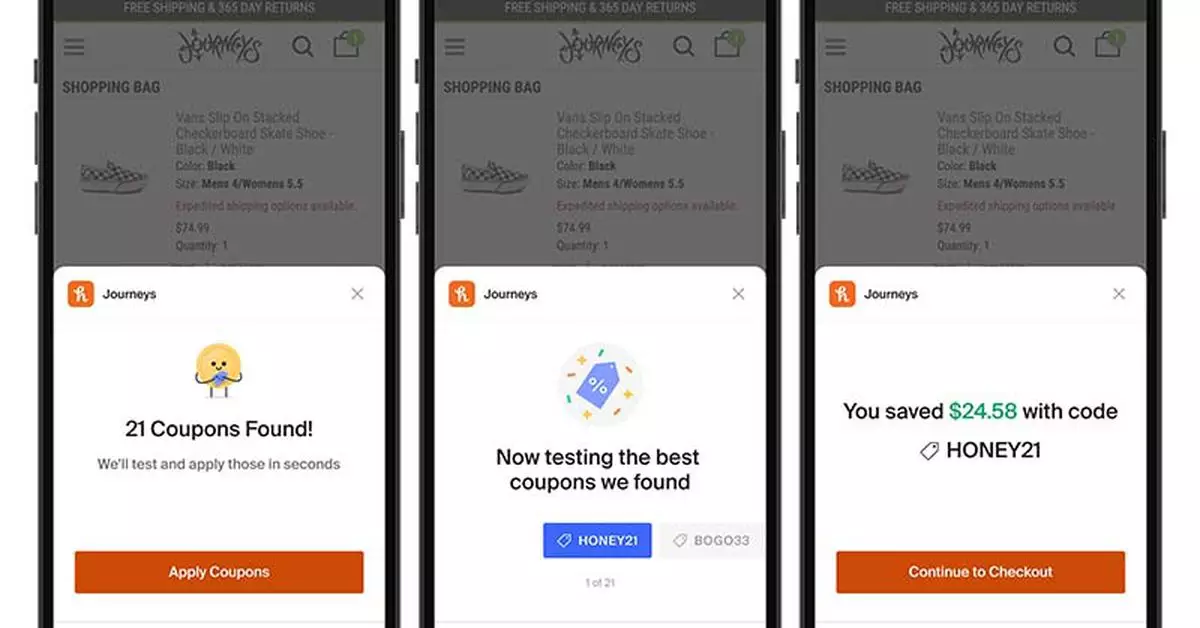PayPal Honey is presented as a valuable tool for online shoppers, designed to seamlessly integrate coupon searches into the checkout experience. Promising to effortlessly unearth discounts while users shop, the browser extension appears to streamline the purchasing process by minimizing the effort needed to find the best deals. However, beneath this facade of convenience lies a growing wave of criticism, particularly stemming from a recent exposé by YouTuber MegaLag, who raises serious questions about the functionality and ethics of the extension.
Honey operates on the premise of finding and applying promotional codes during online checkouts. Users presume that this technology will locate the best available deals to enhance their shopping experience. However, multiple allegations have surfaced regarding Honey’s failure to fulfill this promise, with complaints pointing to the tendency for incomplete coupon searches. In many cases, users find that Honey either cannot locate applicable deals or only provides those that are Honey-sponsored, rather than the best ones available through a standard web search.
Recently, MegaLag alleged that Honey may not only be inefficient but also engages in unethical business practices that could hurt influencers and content creators. According to his video analysis, Honey redirects affiliate revenue from influencers by inserting its tracking links, thereby siphoning off sales that would otherwise credit the original promoter. This means that even when shoppers are guided to a retailer by an influencer’s link, Honey can take the credit for the transaction if they show up at the checkout with the extension activated. Such a practice raises red flags about the integrity of their operations.
Moreover, this concern is not isolated; previous reports have warned users that employing Honey may result in unnoticed financial ramifications. As noted in a 2021 social media post, utilizing Honey’s codes in a different browser may prevent it from claiming affiliate credit, demonstrating the level of distrust some have developed towards the platform. A similar concern was echoed by an employee from Linus Media Group, who confirmed that their brand distanced itself from Honey due to disputes over these affiliate practices.
The argument extends beyond just consumer trust; it concerningly affects the influencer economy. By setting such potentially dubious practices in motion, Honey risks undermining the very content creators who go to bat for their products, raising ethical questions around affiliate marketing as a whole. Influencers rely on partnerships to earn revenue, and if these partnerships are compromised by a third party appropriating credit, it not only disincentivizes influencers but also disrupts the delicate ecosystem they depend on.
The practice of last-click attribution has been defended by PayPal executives like Josh Criscoe, but this argument provides little reassurance to those advocating for fair treatment within affiliate networks. Consumers often perceive these extensions as a means of saving money; however, with the potential for undermined relationships within affiliate marketing, it forces users to reconsider the morality behind this money-saving tool.
For many, the allure of PayPal Honey lies in its promise of effortless savings, but this convenience comes at a conceivable cost. Users may not fully appreciate the implications of using such extensions until it’s too late, emphasizing a need for more transparency surrounding how these platforms operate. As MegaLag’s video illustrates, it’s critical that shoppers be well-informed about the tools they utilize, particularly regarding their hidden costs and ethical standing.
The backlash against Honey’s business model compels a broader discourse on how technology companies should navigate ethical boundaries. With consumer behavior increasingly skewed towards seeking discounts and quick fixes, it’s vital that companies uphold integrity in the experiences they promote. The concerns surrounding PayPal Honey encourage potential users to assess the value of convenience against the potential for compromised trust.
While PayPal Honey may appear advantageous for online shoppers seeking bargains, the criticism it has garnered points toward serious ethical dilemmas that merit careful consideration. As consumers, navigating these digital landscapes requires vigilance and awareness of the practices at play. Transparency, fairness, and loyalty within affiliate relationships should remain paramount not only for the creators advocating for brands but for the consumers they serve. Understanding this balance will help maintain the integrity of online shopping as new technologies continue to emerge.


Leave a Reply